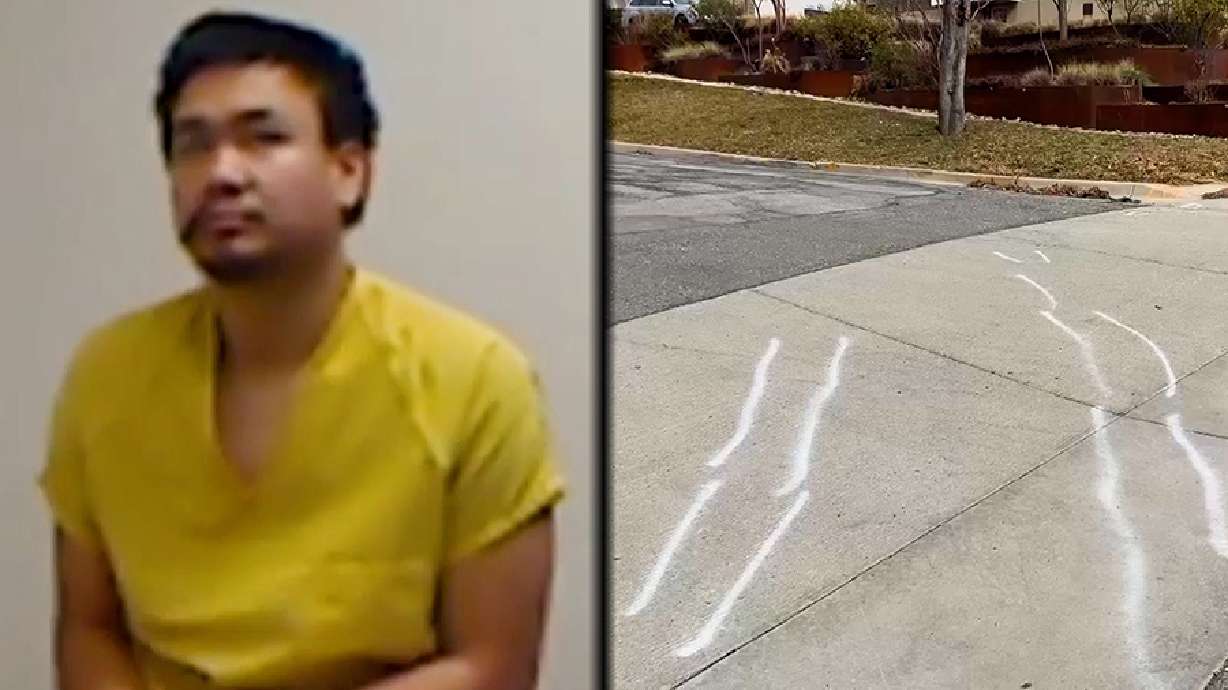- A judge ruled Anh Duy Pham incompetent for trial Monday.
- Pham, accused of intentionally hitting nine female pedestrians, faces nine charges for attempted murder.
- Experts reported different conclusions about Pham's competency for trial and diagnosis.
SALT LAKE CITY — A judge decided a man accused of intentionally hitting nine female pedestrians in hit-and-run crashes during 2023 and 2024 is not currently competent for legal proceedings, but could be in the future.
Third District Judge Adam Mow said Monday he has ongoing concerns about Anh Duy Pham's competency, and he has seen some of the behaviors noted in evaluations during hearings over the last year. But he said the decision to find him incompetent was a "really close call."
The judge explained that the bar to find someone is not competent is low — he just needs to determine there is an over 50% chance that Pham is not competent. He said it is not disputed that Pham has schizoaffective disorder, and there is credible evidence that he has autism spectrum disorder.
Mow also said there is evidence Pham has feigned symptoms and performed inconsistently during evaluations.
Pham will now be transferred from the Salt Lake County Jail to the Utah Department of Health and Human Services, which will be tasked with trying to restore him to competency. His next hearing to consider if he is ready to move forward will be on Oct. 23.
The case
Pham, 28, was arrested on March 13, 2024, after a crash days before in Salt Lake City caused critical injuries. He is accused of hitting women with a car on Aug. 22, 2023, and Feb. 24, Feb. 28, March 2, March 11 and March 12 of 2024.
When he was charged, Salt Lake County District Attorney Sim Gill said the incidents were "predatory targeting shrouded in the shadow of accidents."
He faces a total of nine counts of attempted murder, a first-degree felony; six counts of failing to stop at an accident with serious injury, a third-degree felony; and three counts of failing to stop at an accident with injury, a class A misdemeanor.
The arguments
Three professionals who evaluated Pham gave varied reports during Monday's hearing.
Keith McGoldrick, a neuropsychologist who was hired by Pham's attorneys, said Pham was not able to maintain a normal conversation and would repeat questions before answering. He said conversations with Pham seemed superficial and circular — he stayed fixated on one topic. McGoldrick sat in on conversations with Pham's attorneys and said he repeatedly asked the same questions.
"He seemed to not really understand anything at the end of that whole meeting," he said.
Benjamin Thatcher, who was also called as a witness by Pham's attorneys, said he performed two evaluations on Pham and found in both he was not competent to go to trial. He said Pham's conversations "got to be kind of obnoxious and annoying." In a second meeting, Thatcher took a different, more aggressive, approach and said the nice version of Pham disappeared. He was still pleasant and gave superficial answers.
He said someone who is experienced with autism might be able to help restore him to competency, saying his psychotic symptoms are generally managed through medications at this point.
Meghan Semenick, an evaluator called by prosecutors, said she determined Pham was competent. She said he couldn't repeat back information during her evaluation, but she believed that was on purpose. She said his switch between communication styles made her think he does not have autism.
"He was likely feigning or exaggerating symptoms," she said.
Semenick said Pham was not receiving mental health treatment in jail, yet was functioning fine.
Pham's attorney, Samantha Dugan, agreed that there was evidence of feigning symptoms but said she didn't see how Pham could understand why that would benefit him.
"He doesn't have a correct understanding of what even happens to him if he is found incompetent," she said.
Dugan expressed concerns with statements that he would trust whatever his attorneys suggested, and that prosecutors are his friends.
Deputy Salt Lake County attorney Jamie Whiteway argued that Pham should be considered competent, saying he graduated from high school, has an average IQ and such testing is not reliable if Pham is not genuine. She said he is "clearly feigning his symptoms," and not wanting to cooperate doesn't mean he cannot cooperate.









